The World of Asgaroth has a Size between 500 and 2000 km² and extends over the 5 different Regions of the 5 different Volks.
The Eastern Volk of Ayakuma .
The Southern Volk of Zarathar .
The Western Volk of Elyria .
The Nordic Volk of Angrennor .
The Volk of the plains of Caladrion .
Each Region has its own NPC Capital.
Yunshan
Zankatarr
Silvandar
Akara
Tiraneth
At the beginning of the game, you choose one of the 5 races and create a character whose appearance can be customized. A class is not chosen at the beginning of the game.
Each race has up to 4 different guilds in their regions. If you choose a guild, the guild's skill trees are unlocked. However, it doesn't matter which race you come from. Here you have free choice if you manage to reach the other regions.
Each guild can train the player to create special classes that differ from the classes of other guilds. There are currently 45 different classes.
After complete a Class Quest the player can choose one of the existing classes in his guild. This also unlocks the class skill tree. All skill trees can be leveled by using Skill Points.
Each player can play up to 3 classes at the same time.
If you have filled all 3 class slots, you can also switch to another guild or class. You can level up every guild and class skill tree up to level 10. However, you can only switch with the respective guild masters.
However, it is also possible to create additional Characters.
Each Character has 4 free weapon slots, 2 on the back and 2 on the hip.
The 2 Slots on the back can be equipped with all Weapons. The 2 on the hip can only be equipped with one-handed Weapons.
The Combat system will sound very complex at first, but it can be designed to be very clear and simple and is unique in its form.
Every Player can put together passive skills. These will consist of up to 5 passive Skills that the player can put together from their 3 active classes. However, passive skills are often dependent on certain Weapons. The passive skills are therefore placed next to the Weapons slots with which you want to play the active action combat system.
With this Combat system every Player can play their very own unique style and with its passive art its easy to balance.
There will be a variety of weapons, aktually round about 25.
However, you should be aware that some guild and class skills often require certain types of weapons.
Depending on the type of weapon, these increase certain attributes of the player when used.
There will be 3 types of armor that give different attribute bonuses depending on the type of armor.
Heavy Armor
Medium Armor
Light Armor
Weapons, armor and jewelry items will be available in different rarities.
All weapons and armor get free sockets in which runestones can be socketed. These also come in different rarities and can increase preferred attributes depending on the type.
MANUFACTURING
There will currently be 6 different Professions that a Player can learn.
Depending on the level of the profession, higher quality items can be created. Recipes for special items can be found in instances, for example.
The race and classes you play determines the crafting styles. More can be learned.
Almost all items and resources are available in 5 different Rarity levels.
Normal - Rare - Unique - Mythical - Legendary
Depending on which race materials the items are made by, they have different effects on the players' attributes.
Attribute
There are 3 standard attributes Life - Stamina und Mana.
In addition to these, there are other attributes that the equipment worn can affect.
Physical Attack - Physical Effect Attack - Physical Defense
Magic Attack - Magic Effect Attack - Magic Defense
Defensive Effects - Accuracy - Evasion Rate - Critical Hit Rate
Housing
It will be possible to buy a House in the world of Asgaroth, but with certain limits, rules and requirements. Depending on the final size of the game world, there will be up to 100 vilages per region in which you can buy your own house/place. Each Village has up to 20 Houses for Players and some for NPC´s.
Villages can be lvl up to unlock spezial buildings like Arena, Tavern and more.
The radius of influence of the village is roundabout 500m.
NPC´s
What also makes the game special are the NPCs that can be acquired. These can be found in the NPC villages and have certain requirements to be acquired. There are workers who assits the players..
The crafting NPCs take an active part in the game life by independently fetching the resources for active work orders from the warehouse and storing manufactured items.
They will sleep in an assigned bed at night and spend what little free time they have at the dining table or in a built tavern.
Trade
Trade is another interesting aspect of the game. There are trading places in all villages where every player can see where something is being offered or needed. However, you cannot trade directly at these trading places. (Direct trade between players is always possible)
NPC´s will be send out to get your items from other villages.
If you buy and sell locally, you don't have to pay any in-game taxes. If you trade in the trading post with the help of the merchant NPCs, taxes are levied on the trade, and these increase with distance. So it's better to build trade routes to reduce in-game taxes!
PVP
Basically, if you don't want to do PvP, you don't have to. PvP can be switched ON and OFF. But this is only possible in the capital cities and villages.
There is a mix of PvP, Soft PvP and None PvP.
Except for arena battles, PvP is not allowed in any NPC towns/villages or player villages.
Except for the pure PvP areas where you cannot turn off PvP, the world of Asgaroth is soft PvP if activated.
Soft PvP works as follows:
Players can attack each other, but not kill each other. You become unconscious for a certain period of time and can be looted within this period. Looting = the winning player can loot 10% of the defeated player's inventory, but only 10% of individual item stacks and only resources.
After you have been defeated and the character comes to, you receive a protection buff that ensures that you cannot be attacked or attack players for an hour, except in an act of revenge.
You can take revenge on the previously attacking and winning player and receive the revenge buff for a certain period of time, which increases the attacks against this player. During this period, the protection buff is dissolved.
After this revenge fight, both will receive the protection buff. So think carefully about starting a fight!
There will be pure PvP areas, players fighting here, fighting to the death.
There is something special for honorable PvP players. PvP tournaments!
In the capital cities there are arenas where players can challenge each other 1v1. Whoever wins here gets 100 fame points and whoever loses loses 25 fame points.
In addition, clans that own a village can build small arenas in their villages. Wandering PvP players can challenge the clan or individual players in their arena. The winner in such an arena would receive 300 fame points and the loser would lose 25 points.
Three times a month there are region-specific tournaments in which the best PvP players with the most fame points in their region can take part. Anyone who qualifies for the final in one of these tournaments cannot take part in the others until the final.
At the end of the month there is a final tournament in which the best of the regional tournaments can take part.
There are valuable prizes to be won in both tournaments.
After each final tournament, all fame points are archived. This way, you can see who has the most fame points across the server, but you have to prove yourself again every month to be invited to the tournaments.
Anyone who attacks players for no reason in the soft PvP area loses up to 25% of their fame points, depending on the level difference.
PvE
There will be region-specific instances with different levels of difficulty. In these you can find valuable items and resources, all of which are also tradable. These instances can be entered alone or with up to 6 players. The strength of the opponents adapts to the number of players.
The difficulty level of the instances starts at level 1, whoever has completed this can enter the next level. This can be increased as often as you like until you reach your limits. The level of difficulty determines the drop chance of rare, higher-value items. Items generally drop at player levels. Lower, already mastered difficulty levels can always be accessed.
Every two days an obelisk becomes active per region, opening the gates to the underground from which an army of lizard warriors emerges.
This is where the regional guardians become active. The guardian of the respective region sets out to push this army back. But he will need help. If the guardian survives, all players who helped him will receive a buff that increases PvE defense and PvE attack for a week.
If this army is destroyed and the Guardian survives, the gate to the Underground will remain open for 2 days.
These caves can be entered by the players. There are some rare resources to be found there and also some elite bosses that can be defeated to obtain valuable items that cannot be found in the overworld.
The 5 Guardians of Asgaroth
ADDITIONAL CONTENT
There are mounts in the world of Asgaroth. Currently, these only come in the form of horses. However, they are designed differently depending on the region.
A horse in the stable or at the post that is fed receives a buff that increases its movement speed for 24 hours.
Players with horses that own a post or stable can sell or rent their selected horses tied to it to other players. After the rental period has expired, the horse respawns in the stable or at the post.
Decorative items can be placed, which, depending on their rarity, can increase the well-being of the player NPCs at their workplaces and thus also their productivity.
Players who sit in the tavern for a while to take a short break can pick up the "Rested" buff there. This ensures that the player has a slightly increased chance of looting and gathering rare items for 24 hours. The strength and duration of this buff can be increased depending on the amount and rarity of the decorations in the tavern.
It doesn't have to be your own tavern to get such a buff. So why not visit other villages/players?
More powerful decorative items can be crafted or found in instances and treasure chests.
Players build a bed in their houses, which is used as a respawn point.
Capital cities and NPC villages can also be used as respawn points.
Players can place a small shrine that serves as a respawn point before dangerous areas. This is active for about 6 hours.
More content in progress.
This concept is copyrighted and verifiably protected.
This concept is not freely available for private and Commercial use.



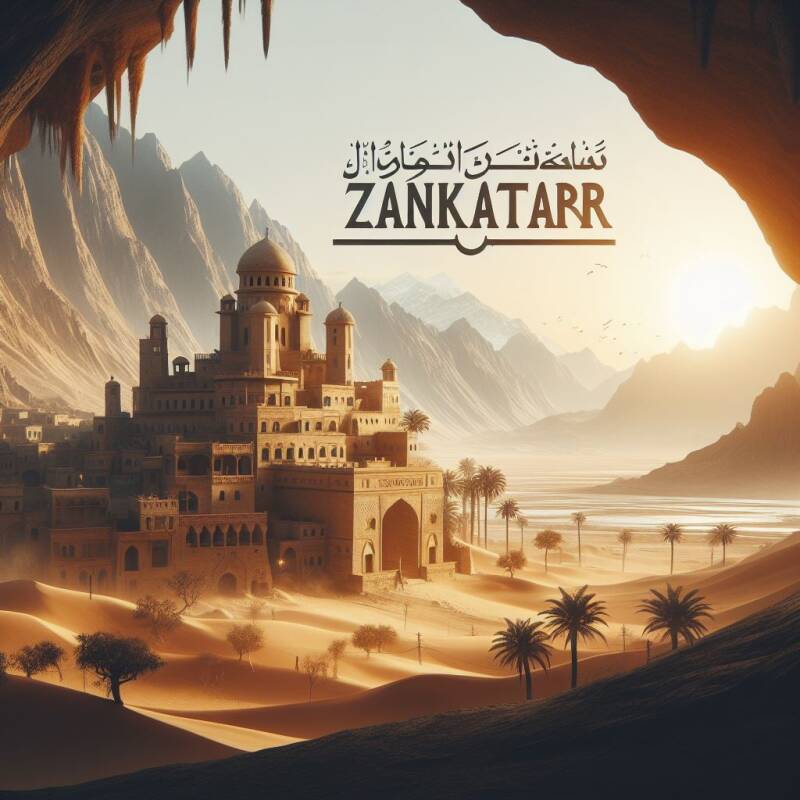




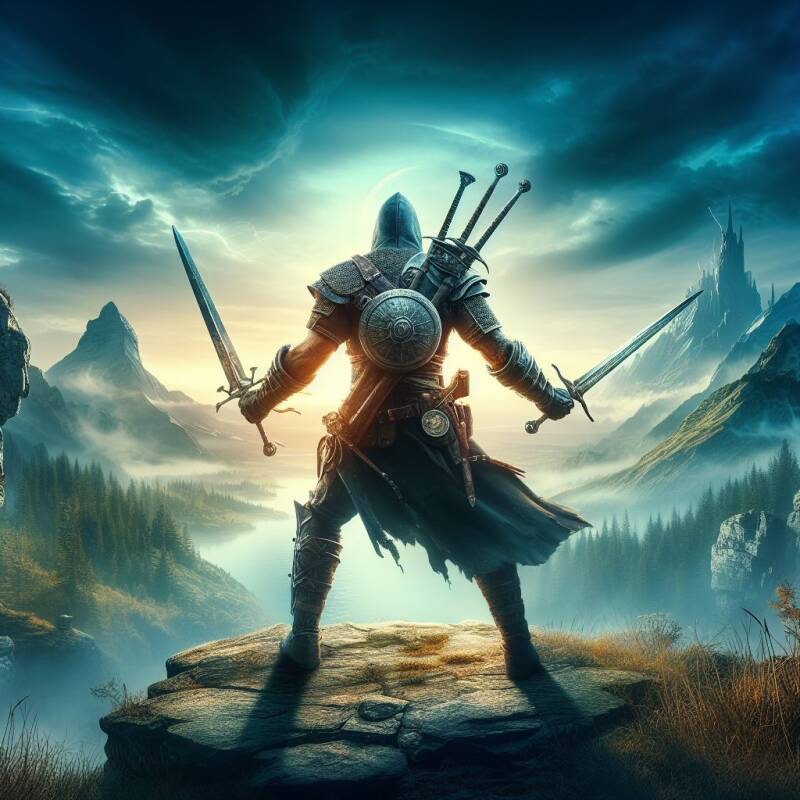



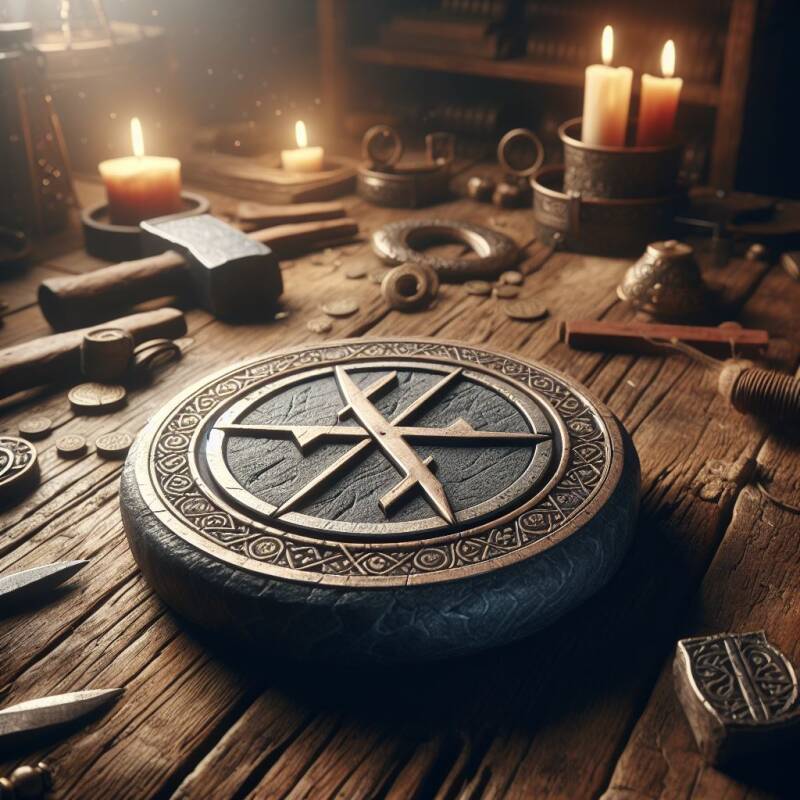






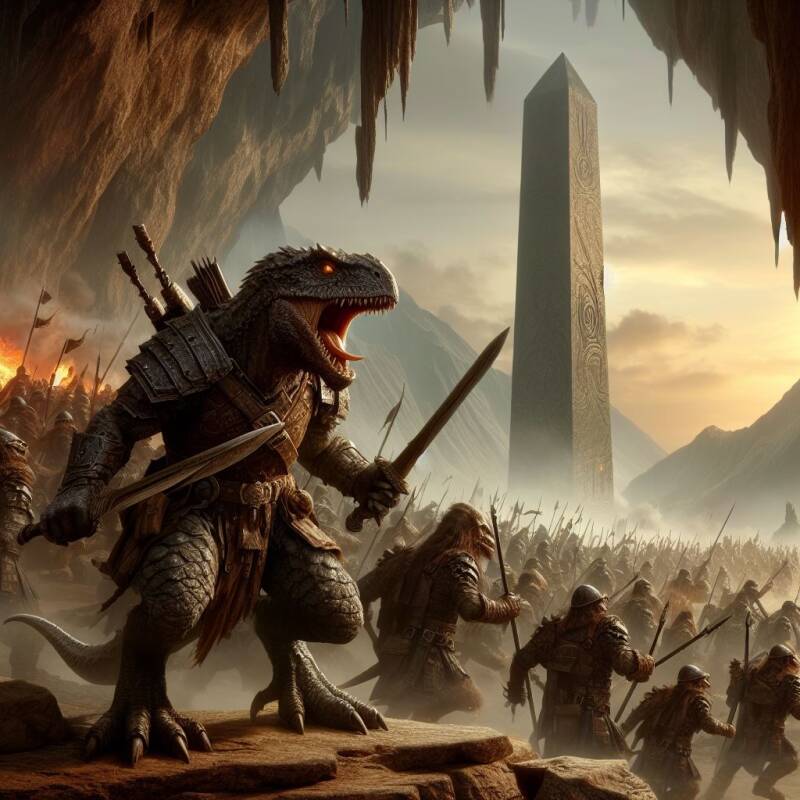


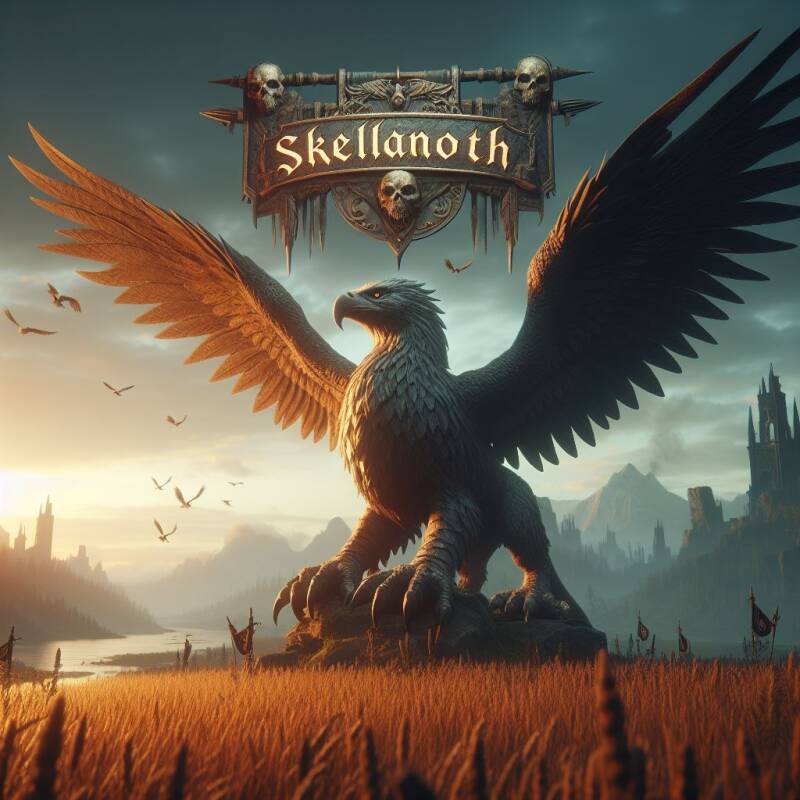


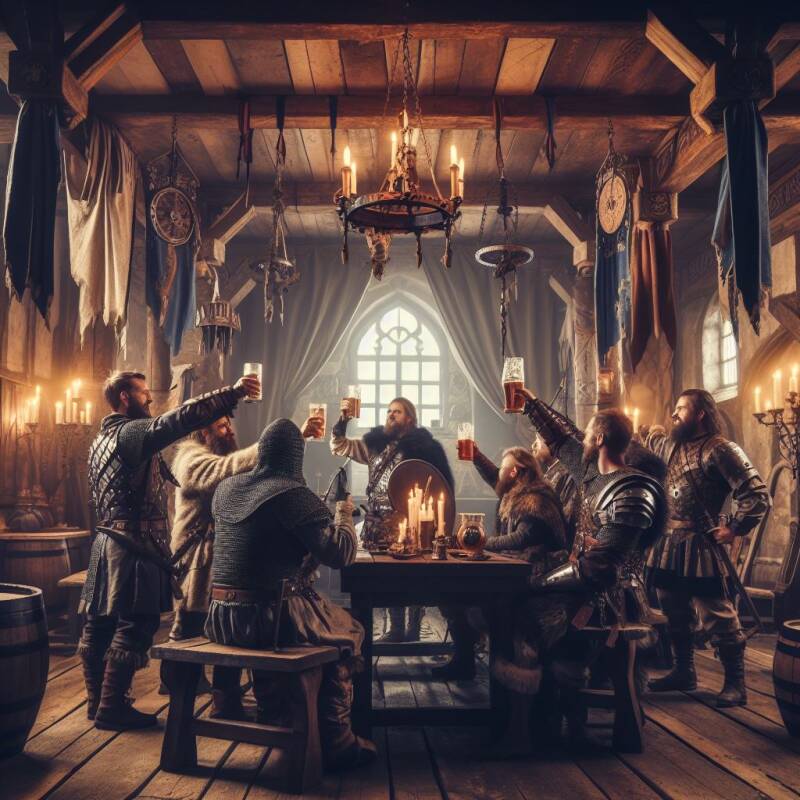
Erstelle deine eigene Website mit Webador